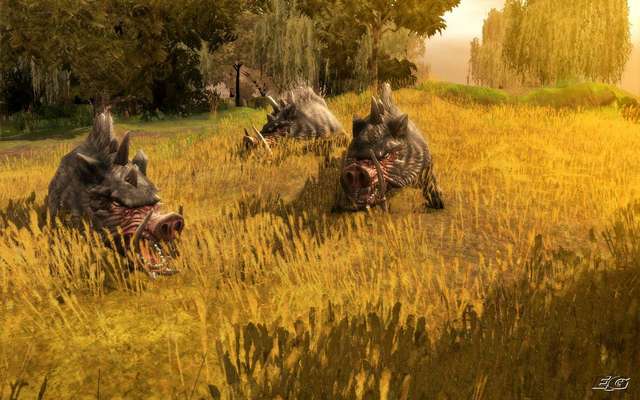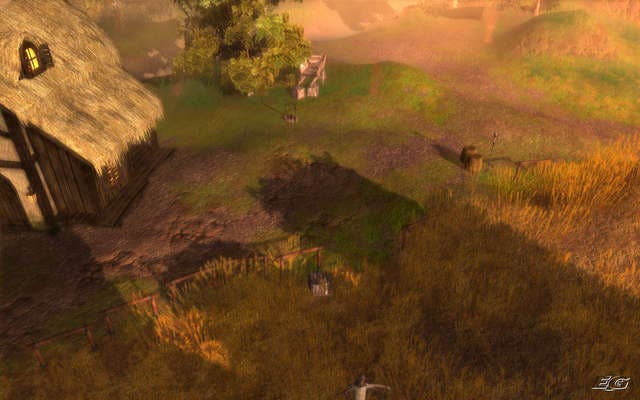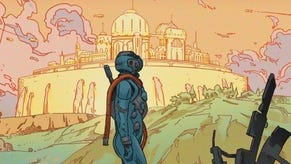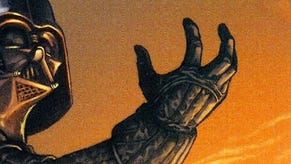Neverwinter Nights 2
Part 1: We make a Date With the Night.
We're in Hammersmith, London. We're here to see Neverwinter Nights 2. We're watching Obsidian's Feargus Urquhart, veteran commander in chief and ex of Black Isle, walk us through the game. He shows us the improved graphics engine. He shows us some of the new mechanics, adding direct control of a party rather than the Mr Lonesome of the original Neverwinter Nights. He leads us through the improved Neverwinter tool-set, showing the increased power and accessibility of this next generation of the world's foremost roleplaying game creation tool.
It all looks good. Yes.
The problem is that the niggles evident in Bioware's Neverwinter Nights didn't particularly show in a demonstration either - and if they do, indeed, remain, they wouldn't show here. The problem with Neverwinter Nights was that while the build-your-own-RPG aspects worked as well as we could have hoped, and the mechanics were an accurate enough recreation of Dungeon and Dragons, the actual campaign that shipped with the game was below par. It's a game that tended to get marks more for potential than what was actually in the box (and, to be fair, in a variety of the mods and the excellent add-on packs, that potential was mostly fulfilled). For a role-playing game, you can't tell how enthralling its story is or how thrilling an adventure it will take you on until you actually get a chance to spend a few hours in its company. After all, in terms of engine, Planescape: Torment and Icewind Dale were created with the same Baldur's Gate tech, just with radically different design priorities.
So, when we get the chance to talk to Feargus, we first try to ascertain what sort of single-player game these veterans of the genre are aiming for. Let's get down to it.
I've always looked at Neverwinter as a combat-centric RPG, in comparison to something like Planescape: Torment. It's a little more focused on the strategy of combat. So, with that, we didn't want to lose more from the story side of things - that's one of the reasons we added the companions; to give the player more to do. One of the core things we tried to do was try to give more things for the player to do and be interested in rather than just go and kill something. How we've done it is via the companions, but we've also done it by... well, one of the things we tried to do is to make things about the player.

We often come up with these RPG stories, where there's a world where there's badness and you have to go and kill the bad-guy yourself. We don't really connect the player to it, other than "Oh - the world's going to die... so you better care about it." What we've tried to do is take the game in a direction where you understand how things affect your character.
For example, at the start of the story you're in West Harbour. In the second part, there's an invasion of the village by these extra-planar beings and the whole village pushes them off. And eventually you discover they were there for you. And they were there for you because when you were just a baby when a big war culminated in West Harbour between the Githyanki and this Sorcerer. At the end of the battle there was a giant explosion, and what had happened was that the sword of the commander of the Githyanki basically explodes. And shatters. And not just shatters so there's a piece underneath the desk... but scatters across the planes. What you find out is that there's a piece in you, which is why these people are all after you.
That's not the overarching story in games in essence - in that it's not just about you figuring out how to get this thing out of you - but it's something that connects you to what's going on. If there's any kind of direction we try to take in the story, then it has to be something that makes sense with you. So the Githyanki are after you, then you have to discover why they're after you and then why this thing is in you, and when you get to Neverwinter... well, it's not just that you turn up at the big city and the Mayor walks up and says "Can you save the world?"

There are all different kinds. We tried to make them interesting. There's a dwarf. There's a Tiefling. There's a Githyanki. All I can say about them is that we try to make that you understand very quickly what they're about, so you can place them in your head so you can grasp why they'll be interesting to travel with. But the idea is, after that... you understand who they are and why they joined you, but as time goes on you'll understand more and more of their compulsions. As you went along more and more with your companions, you understood more and more what they wanted. What we wanted to do is that as you figure it out in Neverwinter, what you want to do and what they want to do divulge, which creates conflict and them basically wandering off to do their own thing or leaving. It makes the story and the world seem more real, as it's not just you being in complete control. If whatever you do or say has no effect, it just becomes you going through the motions.
Yeah, it's harder. Whenever you go for real traditional fantasy you can fall back too much into the stereotypes. Dwarves have to be this way. Elves have to be that way. It's definitely easy to fall into those things, so those designers have to really fight that and come up with interesting characters. It's like any movie or book or game, in that the genre is the setting - it's not everything. You can't allow it to be everything. Like the Middle-Earth movies. The characters are interesting, and they happen to be in Middle-Earth. It's the same thing as this - you want interesting characters that happen to be in a Forgotten Realms world. Don't let the high-level fantasy determine what you are.
Come back tomorrow for Feargus on Obsidian's method of game creation, why characters are important and whether a game losing its lead designer at this stage in the development is something we all should be worried about.





